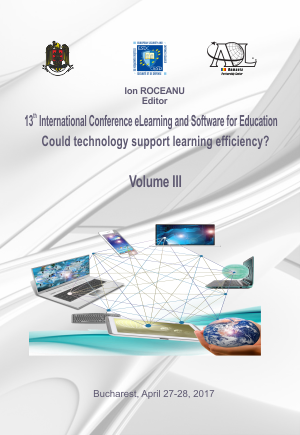TASK-BASED APPROACH IN ENGLISH FOR SPECIFIC PURPOSES (ESP) TEACHING: A CASE STUDY IN THE FIELD OF SPORTS SCIENCES
TASK-BASED APPROACH IN ENGLISH FOR SPECIFIC PURPOSES (ESP) TEACHING: A CASE STUDY IN THE FIELD OF SPORTS SCIENCES
Author(s): Alessandra Fazio, Emanuele Isidori, Óscar CHIVA BARTOLLSubject(s): Social Sciences
Published by: Carol I National Defence University Publishing House
Keywords: Task-based approach; English for Specific Purposes (ESP); pragmatic aspects; project work.
Summary/Abstract: Considering that the study of language use can be carried out from different perspectives such as pragmatics, speech act theory, functional linguistics, despite the fact that any utterance may have a multiplicity of functions/meanings and that the local context can strongly influence interpretation, we agree with Swales’ words “thinking of given stretches of discourse in terms of the actions they are intended to perform brings a useful ‘directedness’ to our perceptions of generic exemplars”. It is widely acknowledged that teaching and learning language involves far more than highlighting lexico-grammar patterns. Pragmatic aspects of language are the most difficult to teach, given their subtlety and complexity. The aim of this paper is to show a case study carried out at the University of Rome “Foro Italico” on a task-based course to teach English for Specific Purposes (ESP) in the field of sports for students mastering in Sports Sciences and Adapted Physical Activity (Master MA in Adapted Physical Activity AMPA academic year 2014 and 2015). The course was based on the principle of specific knowledge acquisition through the use of key-features and key-words in the specific professional setting of sports science in English with the aid of e-tools (blended learning). To this purpose the course was based on project development based on an assigned task. The project was intended as a “simulation” of a professional situation that could have been re-negotiated with the teacher. Project realization based on collaborative work of small groups of students has been carried out as the final outcome for students’ assessment. Examples of students’ realizations and data collected can provide the basis of a teaching resource, specifically designed for an intermediate/advanced postgraduate English class in Italy or Spain.
Journal: Conference proceedings of »eLearning and Software for Education« (eLSE)
- Issue Year: 13/2017
- Issue No: 01
- Page Range: 138-145
- Page Count: 7
- Language: English

